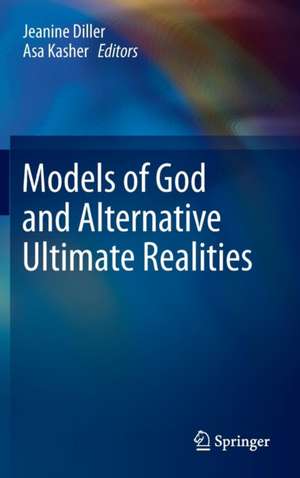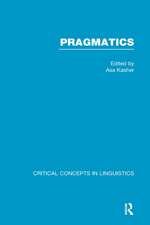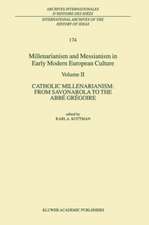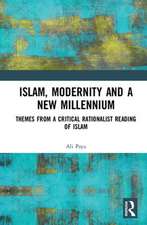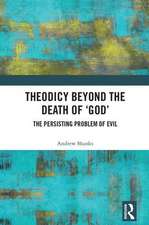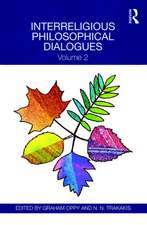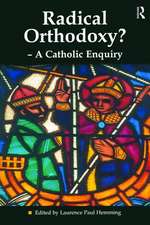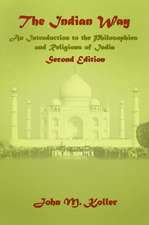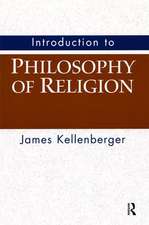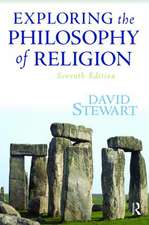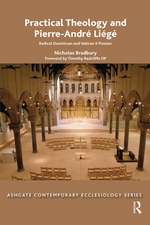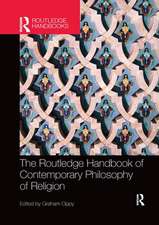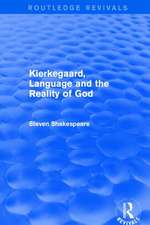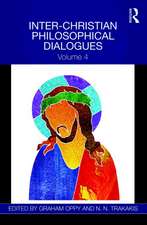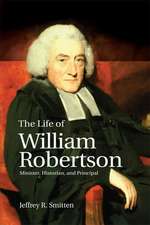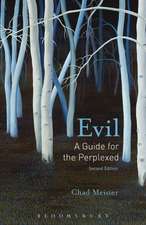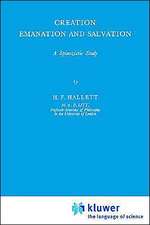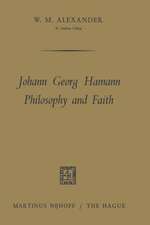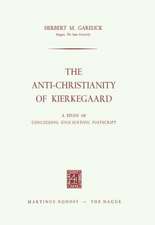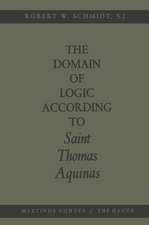Models of God and Alternative Ultimate Realities
Editat de Jeanine Diller, Asa Kasheren Limba Engleză Hardback – 26 iun 2013
| Toate formatele și edițiile | Preț | Express |
|---|---|---|
| Paperback (1) | 1252.92 lei 6-8 săpt. | |
| SPRINGER NETHERLANDS – 27 aug 2016 | 1252.92 lei 6-8 săpt. | |
| Hardback (1) | 1259.72 lei 6-8 săpt. | |
| SPRINGER NETHERLANDS – 26 iun 2013 | 1259.72 lei 6-8 săpt. |
Preț: 1259.72 lei
Preț vechi: 1536.23 lei
-18% Nou
Puncte Express: 1890
Preț estimativ în valută:
241.06€ • 253.48$ • 199.18£
241.06€ • 253.48$ • 199.18£
Carte tipărită la comandă
Livrare economică 17 aprilie-01 mai
Preluare comenzi: 021 569.72.76
Specificații
ISBN-13: 9789400752184
ISBN-10: 9400752180
Pagini: 1064
Ilustrații: XXI, 1041 p.
Dimensiuni: 155 x 235 x 66 mm
Greutate: 1.65 kg
Ediția:2013
Editura: SPRINGER NETHERLANDS
Colecția Springer
Locul publicării:Dordrecht, Netherlands
ISBN-10: 9400752180
Pagini: 1064
Ilustrații: XXI, 1041 p.
Dimensiuni: 155 x 235 x 66 mm
Greutate: 1.65 kg
Ediția:2013
Editura: SPRINGER NETHERLANDS
Colecția Springer
Locul publicării:Dordrecht, Netherlands
Public țintă
ResearchCuprins
Forewords.- Introduction.- A. Conceptual Foundations.- 1. What is a model of ultimate reality?.- 2. Meta-theoretical questions about models of ultimate reality.- B. Specific Models of Ultimate Reality.- Overview of specific models; Ted Peters, James E. Taylor.- 1. Classical and neo-classical theism.- 2. Pantheism.- 3. Process theology.- 4. Open theism.- 5. Panentheism.- 6. Deism.- 7. Ground of being theology.- 8. Religious naturalism/naturalistic theism.- 9. Dualism.- 10. Polytheism.- 11. Communotheism.- 12. Via Negativa/apophatic tradition (against all models).- 13. Skeptical or non-theistic views.- C. Diversity of Models of Ultimate Reality.- D. Practical Impacts of Models of Ultimate Reality.- References.- Index.
Notă biografică
Jeanine Diller is an assistant professor in the Department of Philosophy and Religious Studies and Director of the Center for Religious Understanding at the University of Toledo in Toledo, Ohio, USA. Her research interests include philosophy of religion and philosophical theology, and her outreach efforts aim to increase religious literacy and reduce poverty. Her work has appeared in Philosophia, Southwest Philosophy Review and Religious Studies, and she was recently selected to be a Fellow of the American Academy of Religion/Luce Summer Seminars on Theologies of Religious Pluralism and Comparative Theology.
Professor Asa Kasher is Laura Schwarz-Kipp Professor Emeritus of Professional Ethics and Philosophy of Practice and Professor Emeritus of Philosophy at Tel Aviv University, Israel. He published numerous papers in ethics, philosophy of language and philosophy of Judaism, among other areas, and many ethical documents. He has also been one of the leading public intellectuals of Israel. In a number of papers and the recent book Judaism and Idolatry, he has put forward a clear and thorough presentation of much of the Jewish religious tradition in terms of practices of fighting idolatry, in the spirit of the via negativa. Professor Kasher was given the Israel Prize, the highest national prize, in 2000, for his works in philosophy and ethics.
Professor Asa Kasher is Laura Schwarz-Kipp Professor Emeritus of Professional Ethics and Philosophy of Practice and Professor Emeritus of Philosophy at Tel Aviv University, Israel. He published numerous papers in ethics, philosophy of language and philosophy of Judaism, among other areas, and many ethical documents. He has also been one of the leading public intellectuals of Israel. In a number of papers and the recent book Judaism and Idolatry, he has put forward a clear and thorough presentation of much of the Jewish religious tradition in terms of practices of fighting idolatry, in the spirit of the via negativa. Professor Kasher was given the Israel Prize, the highest national prize, in 2000, for his works in philosophy and ethics.
Textul de pe ultima copertă
Dedicated to exploring the enormous variety of ultimate realities at the center of the world’s great religions and philosophical traditions, this volume is a richly varied collection of essays on how we conceive this central notion, whether expressed as God, or as an ultimate reality of another kind. Years in the making, the collection examines the guiding principles of 15 major philosophical traditions and 6 living religions. A publication of monumental scale and detail, it features an innovative thematic structure that aggregates traditions according to their core models, allowing the reader to grasp the common features of ultimate realities as understood in diverse traditions such as Hindu, Buddhist, Jewish, Muslim, Christian, and in some non-religious discussions.
Borne out of proceedings at both the American Philosophical Association and the American Academy of Religion, the volume also examines foundational questions related to the human propensity for creating and using such models, including the issue of whether we are capable of acquiring knowledge of ultimate reality. It features a sustained analysis of the concept that modeling such an ultimate reality is a fruitless endeavor doomed to failure since the ultimate might well be beyond human conception, as well as reflections on the staggering diversity of these models and their application to concepts such as spirituality, gender equality, war, and global warming. Accessible and authoritative, the collection combines section primers for those new to the field, deeper treatment in dedicated essays, and a wealth of references for further reading and study.
Borne out of proceedings at both the American Philosophical Association and the American Academy of Religion, the volume also examines foundational questions related to the human propensity for creating and using such models, including the issue of whether we are capable of acquiring knowledge of ultimate reality. It features a sustained analysis of the concept that modeling such an ultimate reality is a fruitless endeavor doomed to failure since the ultimate might well be beyond human conception, as well as reflections on the staggering diversity of these models and their application to concepts such as spirituality, gender equality, war, and global warming. Accessible and authoritative, the collection combines section primers for those new to the field, deeper treatment in dedicated essays, and a wealth of references for further reading and study.
Caracteristici
First collection since Hartshorne and Reese's Philosophers Speak about God (1953) to explore from a philosophical perspective the models of ultimate reality in the world's major philosophical & religious traditions Covers models extant in over 15 major philosophical traditions & six living religions, representing over 90% of current religious commitment The only collection on this theme that offers perspectives from many voices on each topic, including an insider's appreciation of each model
